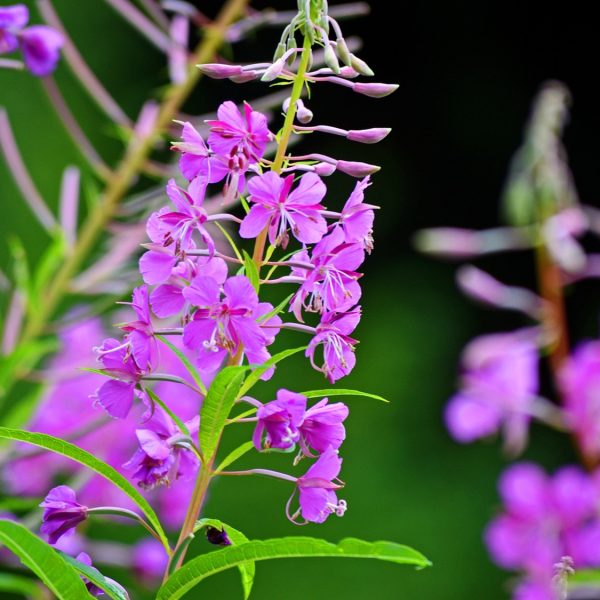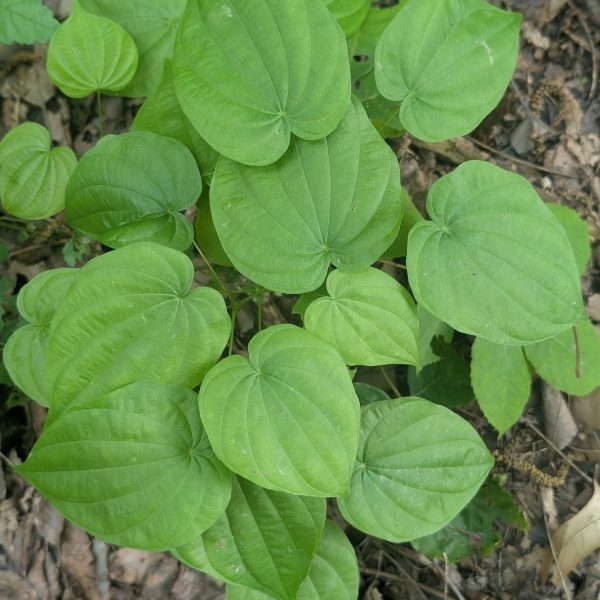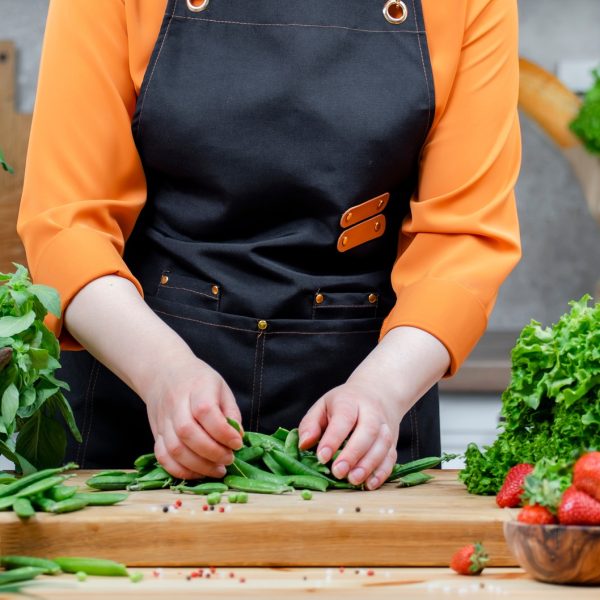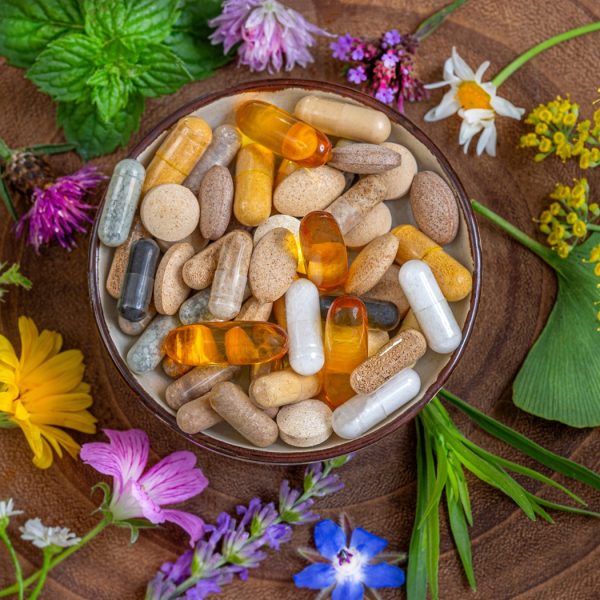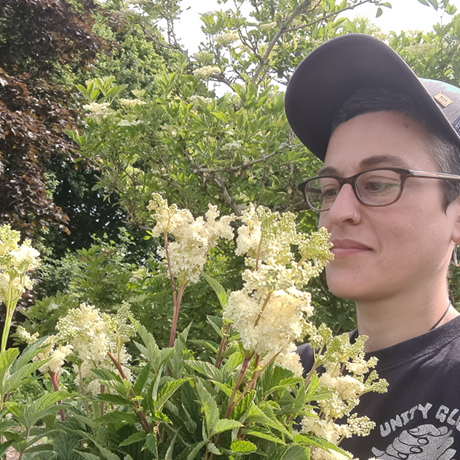
How can a community clinic effectively collaborate with local healthcare providers and GPs? Grass Roots Remedies share how they support those struggling to access quality healthcare.
Herbal medicine is enjoying a resurgence of interest across the UK and beyond, and Grass Roots Remedies Co-operative (GRR Co-op) has been working for 10 years to promote accessibility to low cost herbal treatment at the award winning Wester Hailes Community Herbal Clinic in Edinburgh.
This article builds on previous Herbal Reality articles on Community Herbalism: Connecting Plants and People, Community Herbalism Projects: A Roundup and Herbal Community Initiatives and Accessible Treatment.
The GRR Co-op low cost clinic is based in the Wester Hailes Healthy Living Centre — a multi-disciplinary centre with a wide range of services including a conventional NHS medical practice, social work and addiction support. The clinic is positioned in a local charitable organisation, The Health Agency, within the centre and also collaborates with them and other organisations on a weekly community meal, community gardening and in providing seasonal herbal workshops.
The clinic is grounded in collaboration, and having multiple points of connection with local people is invaluable. People find out about the clinic through formal referrals, such as from GPs; by attending free herbal workshops; hearing one of the team at a group they attend; finding out about medicinal plants being grown for the clinic in one of the local community gardens; or passing an information stall in the local shopping centre, a monthly event.



How does a community clinic work?
The clinic is operated by two herbalists — Kathryn and Audrey, who see patients every Wednesday from 9am–5.30pm. They are supported by our clinic administrator and workshop coordinator— Jillian, a local resident who is also completing her herbalism practitioner training, with the aim to be one of the herbalists in her local clinic once she has qualified.
Patients are charged £10 per appointment and medicines typically cost £5–£8 per week. The clinic does not turn anyone away due to lack of funds and also operates a ‘pay it forward’ scheme where members of the public can cover the full cost of a herbal appointment to help to subsidise the clinic. In recent years, GRR has also contributed to funding the clinic through the sale of herbal products in our online shop, through small local businesses and at events.
In the initial stages of the clinic, Kathryn, Audrey and other GRR staff worked closely with the Wester Hailes Medical Practice to set up referrals. Founding GRR member Ally says of that time:
“We expected the GPs to be apprehensive about our approach and had practiced our presentation to them over and over. When we got in the room with them, it took about 30 seconds to realise that they were as excited about the prospect of working together as we were”.
Since then, local GPs and NHS link workers have made many referrals to the clinic and worked together (with the patient’s permission) in the form of sharing case notes and discussing patient care to ensure a holistic approach. Particularly during the set up phase of the herbal clinic, GRR co-op herbalists shadowed GPs during their consultations and have subsequently hosted medical students on placement (1). Local GPs have also actively supported the clinic’s work by sometimes attending sessions in the community and the organisation has also had various health professionals attend the courses.
Another key referral point for patients is Jillian, whose work goes well beyond clinic admin and also includes delivering free workshops in the local community where she also promotes the clinic. As a local resident, Jillian is known and trusted in the community and plays a huge role in breaking down barriers for people who potentially think that herbalism isn’t suited to them. Jillian remembers one participant in a local church saying to her that she “thought all this herbal stuff was for posh folks” as she walked away at the end of a workshop with the herbal cream she had just made. Feedback from another participant from 2024 said “this course has changed my way of life, and the way I look at the environment that surrounds us”.



Who comes to the clinic?
Wester Hailes is a neighbourhood in the South West of Edinburgh which is consistently ranked in the top 5% most deprived communities in Scotland (2). GRR’s person-centred ethos takes residents socio-economic status and their lived experiences seriously, offering respect and care to support people to make their own autonomous decisions to implement changes in their life, offering a service that is usually not accessible to folks without an expendable income to afford alternative forms of healthcare. Sitting inside The Health Agency also means the organisation can signpost patients to a number of community groups such as the ones mentioned above, with the added benefit that the resident is already familiar with the centre and thus one potential barrier to involvement is reduced.
One of the clinical herbalists Kathryn says:
“The clinic targets groups such as people on low incomes, people who cannot access GP services, such as folk in the immigration system, those living with chronic illness, folks in recovery from abuse/trauma/substance abuse and those from our partner organisations.”
One local resident who has been coming to the clinic for just under a year recounted: “…I knew I was in good hands. I was given a clear timeline for delivery, the next day in fact, by Jillian…I felt immediate benefits, especially concerning my anxiety which had become chronic at that point with me experiencing chest pains….”.
Herbs in community: Closing the circle
Over the years, the organisation has been able to grow and forage more and more of the medicinal herbs that are used in the clinic, including sustainably cultivating at risk plants such as black cohosh (Cimicifuga racemosa), and hard to forage plants such as self-heal (Prunella vulgaris). The concept of ‘food miles’ has become more familiar over recent years and GRR would like to propose consideration of ‘medicine miles’ for the plants that are used medicinally in the clinic. Plants are foraged and cultivated within the local bioregion so they can be used locally and the circle of production can become a closed loop.
At GRR, foraging, growing and tending the herbs is seen as a therapeutic act in itself. Many of the patients and supporters also volunteer in GRR’s growing spaces in Edinburgh and Glasgow, enjoying the benefits of being around and getting to know the plants that they may also use as medicines. This also provides an opportunity to meet like-minded folk who like to get outside and get their hands in the earth. In this way, GRR co-op can ensure high quality medicines are being produced as well as cutting down on medicine miles and mitigating the social and environmental impacts of unsustainable plant cultivation.
GRR are also contributing to increasing biodiversity and places where folk can access nature and skill share about the medicinal value of the local environment as well as easily cultivated plants that can be respectfully harvested for free.



Changes with COVID-19
A certain amount of flexibility has been key to navigate the past few years with a move to some phone consultations and new approaches to bringing herbal medicine to local people.
In 2020 and 2021, when access to the clinic was restricted and GRR could not run herbal workshops in local venues, the organisation was fortunate enough to secure some funding and the Herbal Response Project was born. This saw GRR making herbal remedies, particularly to support people’s immune systems and to deal with stress. These were then given out for free at community meal distribution points in South West & North West Edinburgh and to other vulnerable groups in the Scottish Central Belt.
Once restrictions were eased somewhat, further funding allowed GRR to collaborate with Herbal Scotland CIC and offer monthly pop up stalls in the local shopping centre, with free remedies, information and the chance to speak with the herbalists informally. In just over a year, GRR distributed over 5000 herbal products (3).


Final thoughts
Supporting a low-cost community herbalism clinic has required dedicated input from many people over the years, including volunteers and those volunteering their time around their 9 to 5
jobs. GRR could not have kept going without this and would encourage anyone looking to develop their own community herbalism project of any kind to cultivate the company of like-minded folk who share their vision of accessible herbalism. Many people across the UK are involved with health-related food and growing initiatives, and they may not realise that herbalism could be included in their offering or may be unsure where to start. So, collaborating with local community growers to become community herbalists is a great place to start.
To find out more about the work of Grass Roots Remedies Co-operative you can visit the website and sign up to the newsletter www.GrassRootsRemedies.co.uk
References
- Hurcikova, A. (2017) Working towards Herbal & medical collaboration in Wester Hailes, My WordPress. Available at: https://www.grassrootsremedies.co.uk/2017/02/06/working-towards-herbal-medical-collaboration-in-wester-hailes (Accessed: 16 April 2025).
- Bishop, S. (2021) Herbal response project – community herbalism in the coronavirus pandemic, My WordPress. Available at: https://grassrootsremedies.co.uk/2021/07/26/herbal-response-project-community-herbalism-in-the-coronavirus-pandemic (Accessed: 16 April 2025).
- SIMD (Scottish index of multiple deprivation) (2020) Scottish Index of Multiple Deprivation. Available at: https://simd.scot/#/simd2020/BTTTFTT/14/-3.2786/55.9144/ (Accessed: 16 April 2025)

